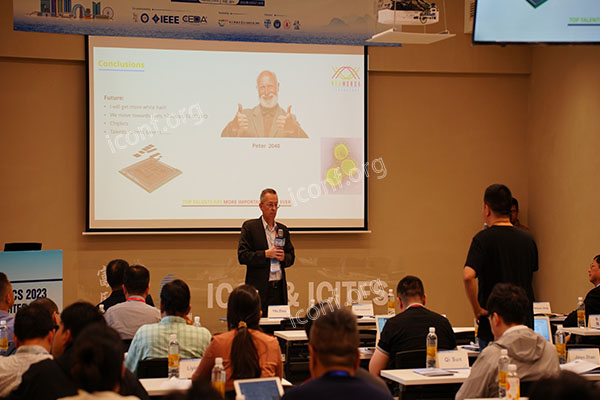In today’s data-driven world, information science is at the forefront of technological innovation and academic inquiry. Responding to a Call for Papers (CFP) in information science offers you the chance to present your cutting-edge research, shape the future of digital technologies, and connect with a global community of scholars.

Global Exposure and Academic Recognition
International Visibility: Showcase your research to a worldwide audience of academics, practitioners, and industry leaders.
Enhanced Research Profile: Strengthen your scholarly reputation and increase citation impact by presenting your work at high-profile conferences.
Driving Innovation and Collaboration
Innovative Contributions: Share novel findings and breakthrough methodologies in areas such as data analytics, knowledge management, information retrieval, and digital transformation.
Collaborative Opportunities: Build interdisciplinary partnerships that spur further research and unlock new funding avenues.
Constructive Peer Feedback
Expert Review: Receive valuable critiques and insights that help refine your research and bolster its impact.
Continuous Improvement: Leverage feedback to enhance your methodologies, strengthen your arguments, and elevate the quality of your work.
1. Understand the CFP Guidelines
Detailed Review: Carefully study the CFP to ensure your research aligns with the conference themes, whether it’s on big data, human-computer interaction, or digital information management.
Adherence to Requirements: Follow formatting, citation, and submission guidelines meticulously to avoid technical rejections.
2. Craft a Compelling Abstract
Concise and Informative: Clearly state your research question, methods, key findings, and overall significance in a succinct abstract.
Keyword Integration: Use relevant terms like “information science research” and “digital innovation” naturally to improve SEO.
3. Organize Your Manuscript Effectively
Structured Format: Employ the IMRaD (Introduction, Methods, Results, and Discussion) structure to present a coherent and logical narrative.
Visual Enhancements: Utilize high-quality charts, graphs, and tables to visually support your data and reinforce your conclusions.
4. Highlight Originality and Practical Impact
Innovative Insights: Emphasize how your research introduces new methodologies or addresses current challenges in the digital landscape.
Real-World Applications: Discuss the potential implications of your findings in enhancing information systems, improving data analytics, or transforming digital practices.
5. Ensure Professional Presentation
Editing and Proofreading: Consider professional editing services to ensure clarity, precision, and error-free content—especially if English is not your first language.
Compliance: Strictly adhere to all submission instructions to ensure your manuscript meets the highest academic standards.
For researchers looking to maximize their CFP submissions in information science, iconf.org offers a robust suite of resources:
Curated CFP Listings: Easily discover international information science conference CFPs from a single, comprehensive platform.
Expert Submission Guidelines: Access detailed tips and best practices tailored to information science research to prepare a competitive manuscript.
Global Networking: Connect with a vibrant community of scholars, industry experts, and potential collaborators to foster interdisciplinary partnerships.
Integrated Academic Resources: Explore a wealth of high-quality academic papers, journals, and datasets to support your research and enhance your presentations.
Responding to an Information Science Call for Papers is a powerful step toward elevating your research and shaping the future of digital technologies. By following best practices in manuscript preparation, crafting a compelling abstract, and leveraging the extensive support available on iconf.org, you can significantly boost your academic impact and join a global network of innovators.
Take the next step in your academic journey—prepare your CFP submission today and let your research contribute to the evolution of information science. Visit iconf.org now to explore additional resources and unlock new opportunities for academic excellence and collaboration.